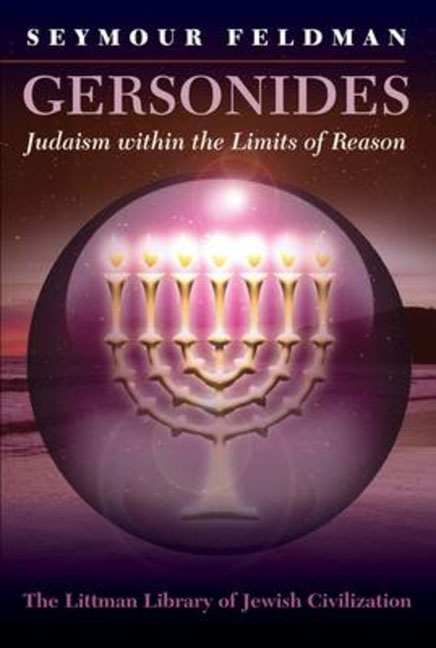Book contents
- Frontmatter
- Dedication
- Acknowledgements
- Contents
- Note on Transliteration
- Note on Sources
- 1 Introduction: Life and Works
- 2 The Story of Creation
- 3 God and his Attributes
- 4 Divine Omniscience
- 5 Divine Providence
- 6 Divine Omnipotence
- 7 Prophecy
- 8 Humanity and its Destiny
- 9 The Torah
- 10 Conclusion
- Bibliography
- Index
8 - Humanity and its Destiny
- Frontmatter
- Dedication
- Acknowledgements
- Contents
- Note on Transliteration
- Note on Sources
- 1 Introduction: Life and Works
- 2 The Story of Creation
- 3 God and his Attributes
- 4 Divine Omniscience
- 5 Divine Providence
- 6 Divine Omnipotence
- 7 Prophecy
- 8 Humanity and its Destiny
- 9 The Torah
- 10 Conclusion
- Bibliography
- Index
Summary
Philosophical and Religious Background
ANOTHER TOPIC of common interest, both for some Greek philosophers and for believers in scriptural religions, was the question of humanity’s ultimate felicity. It was assumed by adherents of both traditions that a person's mundane existence as a material entity was not the end of the matter. There had to be something more than a life of material pursuits and satisfaction. Quite early in Greek philosophy doctrines of the afterlife were developed, one of which was the notion of the immortality of the soul. This is a dominant motif in Plato. In several of his dialogues, most notably the Phaedo, he enunciated and argued for the doctrine that the human soul is immortal by virtue of its essential incorporeality and hence incorruptibility. In some of his dialogues this core doctrine is associated with the ancillary ideas of the pre-existence of the soul and of the transmigration of souls. In later Platonism, especially the philosophy of Plotinus, this basic idea is interpreted in terms of the doctrine of the ascent, or ‘reversion’, of the human soul to some higher entity, the World Soul, or even to the One, the ultimate reality. In this supernal state the soul enjoys an existence that is vastly different from and superior to what it had experienced in its embodied state.
Aristotle had problems with Plato's psychological theory, especially its sharp distinction between soul and body. He developed an alternative theory that asserted the unity of the soul with the body, wherein the soul is the form of the body. Plato's doctrine of immortality presupposes a doctrine of psychological dualism, according to which the soul and the body are radically distinct entities, and as such are essentially separable and have different destinies. Aristotle could not accept this dualism, given his scientific, and especially biological, interests. He eventually developed a psychological theory asserting the unity of the mind and the body, wherein the soul is the form of the body. Since the form is what makes a thing what it is, it is no more separable from the body than the shape of an orange is separable from the orange itself. In living things the soul, or form, is the principle of life for that thing. It would seem, then, that with the death of the body the soul perishes too.
- Type
- Chapter
- Information
- GersonidesJudaism within the Limits of Reason, pp. 172 - 197Publisher: Liverpool University PressPrint publication year: 2015



